What is CiPPPA?
CiPPPA is a not-for-profit, industry-wide initiative with a mission to enable companies and members of the public to recycle their primary pharmaceutical packaging (PPP) waste with ease and assurance, thereby contributing to the elimination of waste, whilst reducing greenhouse gas emissions.
CiPPPA, a collaborative initiative with commonly shared objectives, actively engages, connects, and coordinates stakeholders, including suppliers, pharmaceutical companies, manufacturers, waste management facilities, academic institutions and service providers across the entire pharmaceutical supply chain.
The CiPPPA initiative focuses on sustainable solutions for reducing, collecting, reprocessing, and promoting circularity in pharmaceutical packaging in the UK and beyond.
CiPPPA’s establishment seeks to empower the pharmaceutical industry and health services by identifying and advancing effective solutions to enhance pharmaceutical packaging recycling, thereby reducing the environmental impact of healthcare systems. The organisation’s success will be measured by the absolute reduction in primary packaging waste with a product focus on blister packs, injector pens, and inhalers.
FAQs
Who is eligible to participate in CiPPPA?
CiPPPA is open to all organisations in the PPP value chain, including pharmaceutical companies, healthcare facilities, waste management and recycling organisations, patient advocacy groups, academic institutions, regulatory bodies and individuals who want to contribute to circularity in pharmaceutical packaging.
What are the environmental benefits of pharmaceutical recycling?
Recycling pharmaceutical packaging reduces waste in landfills and lowers greenhouse gas emissions, contributing to a more sustainable healthcare industry.
Addressing Industry Challenges
The pharmaceutical and health service industry is currently facing a multitude of challenges around the recycling of primary pharmaceutical packaging. Current regulations are stringent to ensure the safety, efficacy and regulatory compliance of each active medicinal product, but rarely take into account long-term environmental effects.
Factors affecting medical packaging:
• Ensuring product integrity is not compromised;
• Ensuring materials are compatible with the product;
• Avoiding product contamination or degradation;
• Ease of use and accessibility;
• Environmental impact;
• Cost considerations.
While all these factors are imperative to primary pharmaceutical packaging, current solutions are often neither biodegradable nor easily recyclable, made of a mixture of complicated plastic polymers, leading to increased waste in landfills. Their disposal poses a huge risk to the environmental efforts of the industry.
Current Issues with Pharmaceutical Packaging
Primary pharmaceutical packaging, including blister packs, injector pens, and inhalers, is often incinerated or sent to landfills instead of being recycled. This is primarily due to the packaging’s design being focused on medicine protection and patient safety regulations rather than environmental considerations.
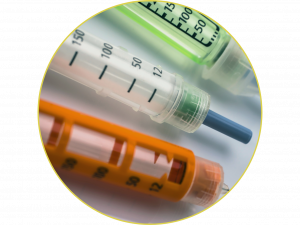
Billions of Units of Waste Annually Per Company
One pharmaceutical company releases company 23.5 billion packs of medicines globally each year. Another leading pharmaceutical company admits to placing significant amounts of paper, glass, and plastic associated with injector pens into the UK market annually, with minimal recycling.
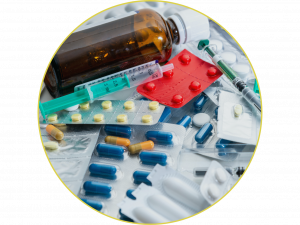
Complexity of Materials Prohibits Recycling
Regulatory restrictions and varied material properties make healthcare packaging challenging to divert from landfill. The diverse and complex range of materials used – such as PVC, PVdC, PE, HDPE, A-PET, PET-G, PP, PCTFE, COC, EVOH and aluminium – further complicates collection, sorting, and disposal.
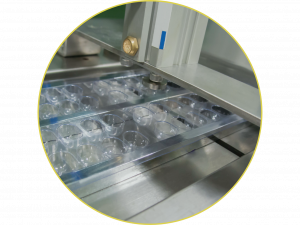
Large Carbon Footprint from Manufacturing and Packaging
A 2022 OHE report indicates that the manufacture, formulation, and packaging of medicines contributes up to 30% of the total carbon footprint of the pharmaceutical industry, with an additional 2% of carbon emissions generated from end-of-life disposal.
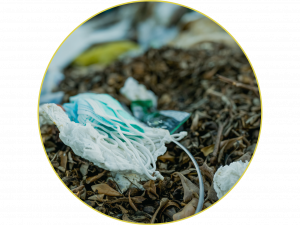
Current Recycling Options Too Expensive
Previous trials of take-back schemes for specific pharmaceutical packaging types suggest challenges for individual companies to sustain the costs beyond a short period.
Circularity in Primary Pharmaceutical Packaging Accelerator (CiPPPA)
At CiPPPA, our vision is clear: a future where sustainable packaging is the norm.
CiPPPA was launched in September 2023 to provide an industry-wide platform to bring practical solutions to the challenges facing circularity in primary pharmaceutical packaging. We are a not-for-profit initiative driven by the alliance members task force – a collective of industry stakeholders committed to sustainable solutions.
The task force along, with the Project Management office (PMO) run by TDi Sustainability, conducts gap analyses using the CiPPPA theory of change as a guide to prioritise and leverage existing initiatives, or schemes with the most potential to scale.
CEO of TDi Sustainability, Dr Assheton Stewart Carter, is passionate about addressing the environmental impact of healthcare systems, and believes that CiPPPA is a crucial step towards building a sustainable future for the pharmaceutical industry.
CiPPPA’s mission is to coordinate, support, and deliver targeted programmes of collective action for sustainable circular solutions in pharmaceutical packaging. Our goal is to bring key industry players together, fostering collaboration to drive effective change.
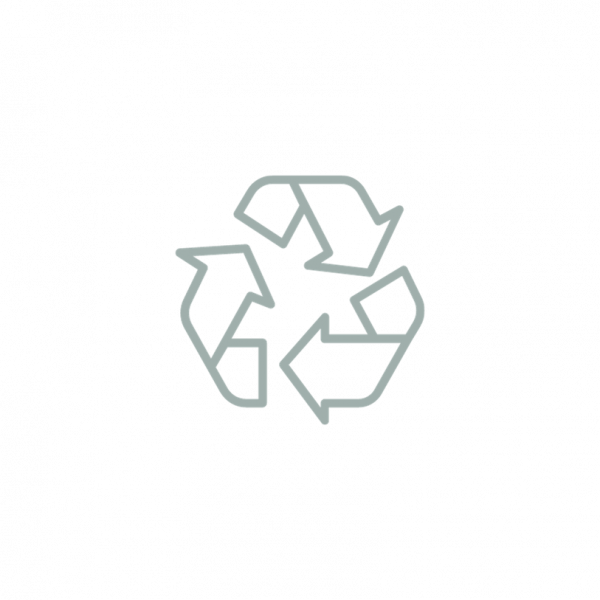
Legislation and Circular Economy
We recognise the importance of key legislation that pharmaceutical companies should be aware of in managing packaging waste. CiPPPA emphasises circularity in pharmaceutical packaging and aligns with the principles of a circular economy. By adopting sustainable practices through this initiative, we aim to reduce carbon footprints throughout the supply chain.

Project Management Office: TDi Sustainability
TDi Sustainability is responsible for the coordination of the multiparty initiative with a focus on circularity within PPP, and is dedicated to reshaping the future of primary pharmaceutical packaging through this latest initiative.
Learn more about TDi industry initiatives here.
How It Works
Participating in CiPPPA’s take-back scheme is user-friendly and impactful for all members involved.
Individuals and organisations can contribute to circularity by responsibly collecting three types of pharmaceutical products:
• Inhalers
• Injectables
• Blister packs
Despite current challenges in material types and accessibility, CiPPPA understands the need for collaboration, transparency, and the environmental benefits of pharmaceutical recycling.
The industry already has considerable knowledge about short-term opportunities and solutions to reduce packaging waste. These include models for scaling kerb-side collection and take-back schemes, rapid down-cycling pathways enabling the collection of wastes from manufacturers and packers, simplified designs to facilitate post-consumer collection and collective advocacy to improve current regulations on using waste materials in primary pharmaceutical packaging.
Now, action is needed to advance and scale these solutions with the backing of key industry pharmaceutical companies, scientists and consumers.
Stay tuned as we introduce detailed mapping to pinpoint local collection sites, explore processes around collection and recycling, and analyse long-term impacts on local waste reduction.
Be Part of the Change
Help build a future where the healthcare industry leads in environmental stewardship.
Contact us
Fill in the below form and we’ll contact you directly.
Register Your Interest to Join CiPPPA Now.
Join CiPPPA in accelerating circularity in primary pharmaceutical packaging. Our initiative is backed by evidence-based metrics that demonstrate waste reduction through collaborative action over time.
By becoming a member, you can contribute to our mission of sustainable packaging and the ambitious redesigning of pharmaceutical packaging, as well as staying informed about relevant laws and regulations shaping the future of pharmaceutical packaging sustainability.
Get in touch through our contact form to register your interest in joining CiPPPA today, and a member of our team will reach out to you shortly to discuss next steps.
